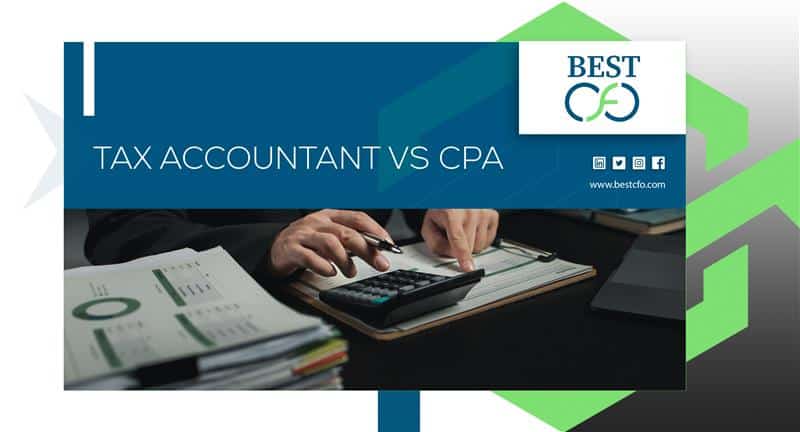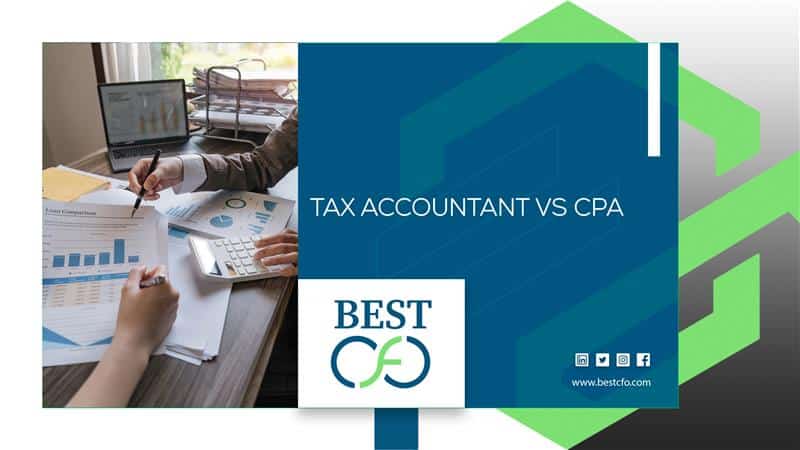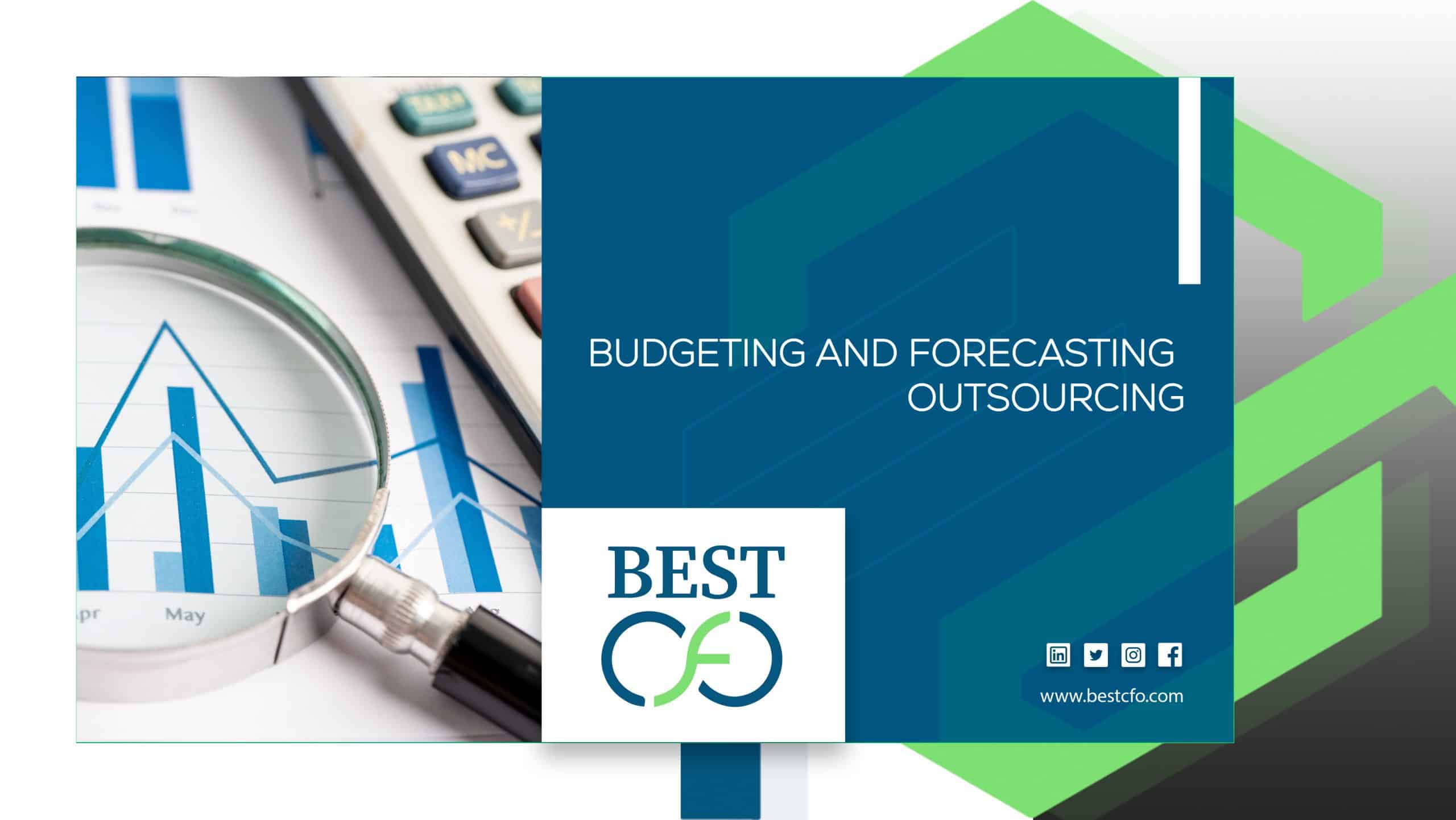
| Getting your Trinity Audio player ready... |
Hiring a Tax Accountant vs CPA: Which is Right for You?
When it comes to managing your money and planning for the future, hiring the right tax professional is an important decision. Whether you’re an individual filing a simple return or a business owner navigating complex financial laws, getting help from the right expert can save you time, money, and stress.
Many people often feel confused when choosing between a Tax Accountant and a Certified Public Accountant (CPA). At first glance, their roles might seem similar, but they actually have different qualifications, services, and costs. So, which one is right for you?
In this blog, we’ll explain the difference between a tax accountant and a CPA, when to hire each one, and how to choose the best fit for your needs. We’ll also touch on other options like Enrolled Agents and tax software. By the end, you’ll know exactly what to look for when it comes to managing your tax, finance, and business needs.
What is a Tax Accountant?
A tax accountant is a finance professional who focuses mainly on preparing and filing tax returns. Their job is to make sure individuals and small businesses follow tax laws and take advantage of deductions and credits.
Common Services Offered:
- Filing income tax returns for individuals and small businesses
- Helping clients find legal ways to lower taxes
- Managing bookkeeping and simple financial records
- Guiding clients through yearly tax changes
Typical Clients:
- W-2 employees
- Freelancers and gig workers
- Small business owners
Tax accountants are usually trained through vocational education or hold a Bachelor’s degree in accounting, and may work in service industries, private firms, or offer remote work support.
What is a Certified Public Accountant (CPA)?
A Certified Public Accountant is a licensed professional who has passed the Uniform Certified Public Accountant Examination, fulfilled education and work experience requirements, and follows strict ethics rules.
Qualifications:
- Bachelor’s or Master’s degree in accounting or finance
- Pass the CPA exam
- Complete a set number of work hours under supervision
- Continuing education to maintain certification
Broader Scope of Services:
- Tax planning and preparation
- Auditing financial records for accuracy
- Financial consulting for businesses and wealthy individuals
- Support with business valuation, mergers, and investment planning
- Helping clients comply with government regulations
Typical Clients:
- Corporations
- High-income individuals
- Clients needing detailed financial management or legal support
CPAs are often members of the American Institute of Certified Public Accountants (AICPA) and can represent clients in front of the Internal Revenue Service (IRS) during audits.
Key Differences Between Tax Accountant vs CPA: Table of Comparison
Feature | Tax Accountant | Certified Public Accountant (CPA) |
Education | Bachelor’s or vocational training | Bachelor’s + CPA exam + experience |
License Required | Not always | Yes, state licensing required |
Services Offered | Mainly tax preparation | Tax prep, audits, financial planning |
IRS Representation | Limited (unless an Enrolled Agent) | Full representation rights |
Typical Clients | Individuals, small businesses | Large businesses, complex finances |
Cost | More affordable | More expensive due to qualifications |
When Should You Hire a Tax Accountant?
Ideal Situations for a Tax Accountant:
- You have a simple W-2 and basic deductions
- You own a small business with no complicated finances
- You just need help with tax filing, not long-term planning
- You’re looking for a budget-friendly option
Pros of Hiring a Tax Accountant
- Lower expense compared to CPAs
- Solid knowledge of taxation in the United States
- Quick turnaround for tax season needs

Limitations of a Tax Accountant
- May not have the right to speak for you in an IRS audit
- Not trained to handle complex investments or financial strategies
When Should You Hire a CPA?
Ideal Situations for a CPA
- You own a business with many parts like payroll, employees, or multiple locations
- You are dealing with IRS issues, or need audit protection
- You’re planning your estate, retirement, or major investments
- You’re buying or selling a company or handling inheritance
Pros of Hiring a CPA
- Deep understanding of accounting qualifications, laws, and planning
- Can legally represent you to the IRS
- Offers advice on corporate finance, taxes, and strategy
Limitations of a CPA
- Fees are often higher
- May be too advanced for simple tax needs
Cost Comparison – Tax Accountant vs CPA
Average Fees for Tax Accountants:
- Charge hourly ($100–$200) or flat rates ($150–$500 for a return)
- Cheaper for individuals with basic tax needs
Average Fees for CPAs:
- Hourly rates usually $200+
- Extra costs for services like audits or financial planning
Is a CPA Worth the Extra Cost?
Sometimes, yes. If you’re running a business or planning big financial moves, a CPA can actually save you more money in the long run through better advice and tax strategies.
If you just need your taxes done each year and don’t have a lot of extras, a tax accountant might be the smarter pick.
How to Choose the Right Professional for Your Needs
Assessing Your Financial Situation:
- Individuals: Are your taxes simple or do you have multiple income sources?
- Businesses: Do you need bookkeeping, audits, or advice?
Questions to Ask Before Hiring:
- “Are you licensed as a CPA or an Enrolled Agent?”
- “Do you have experience with clients like me?”
- “What are your fees and how are they calculated?”
Red Flags to Watch For:
- No proof of certification or license
- Promises like “guaranteed refund”
- Poor communication or bad online reviews
Alternatives – Enrolled Agents (EAs) & Tax Software
What is an Enrolled Agent (EA)?
EAs are tax pros who pass a test with the IRS and specialize only in tax. They can represent you in front of the IRS and are often a smart middle-ground between a tax accountant and a CPA.
When is Tax Software Enough?
If your taxes are super simple (just a W-2 and a few deductions), software like TurboTax or H&R Block can do the job. But if you run a business or face legal questions, hiring a person is the safer bet.
Conclusion
Choosing between a Tax Accountant vs CPA depends on your needs. If your situation is simple and you’re just filing a yearly return, a tax accountant can get the job done at a lower cost. But if you own a business, have investments, or need someone to help with bigger financial moves, a CPA offers more value in the long run.
No matter who you hire, always check their background, credentials, and experience. Your finances deserve trusted hands. If you’re running a company and need expert-level planning and management, check out Best CFO — a great option for all your business financial service needs.
FAQs
1: What’s the biggest difference between a CPA and a tax accountant?
A CPA is licensed and can offer a wider range of services like audits and financial consulting. A tax accountant focuses mainly on tax prep.
2: Is hiring a CPA worth the cost?
Yes, if you have complex needs like business audits, long-term planning, or legal issues with the IRS.
3: Can I use tax software instead of a person?
Yes, if your tax situation is basic. But for complex cases, it’s safer to hire a professional.
4: What is the Uniform CPA Exam?
It’s the national test required to become a CPA in the U.S., covering accounting education, law, and ethics.
5: What is Best CFO?
Best CFO is a top service for businesses that need expert-level financial help, from budgeting and planning to corporate governance and risk management.
Previous Post
Audit of Financial Statements: Guide for Business Owners
Post a comment Cancel reply
Related Posts
From Finance to Future-Proofing: The Strategic CFO for IT
From Finance to Future-Proofing: The Strategic CFO for IT Suppose a traditional CFO sitting at…
CFO vs Finance Manager: Choosing The Right One For You
CFO vs Finance Manager: Choosing The Right One For You The finance world can be…
When Should You Outsource My CFO? – The Guide
When Should You Outsource My CFO? – The Guide Every business, no matter how small…
Top 5 Reasons Why You Should Outsource HR
Top 5 Reasons Why You Should Outsource HR Outsourcing is gaining popularity among businesses looking…
 Demos
Demos  Colors
Colors  Docs
Docs  Support
Support 










